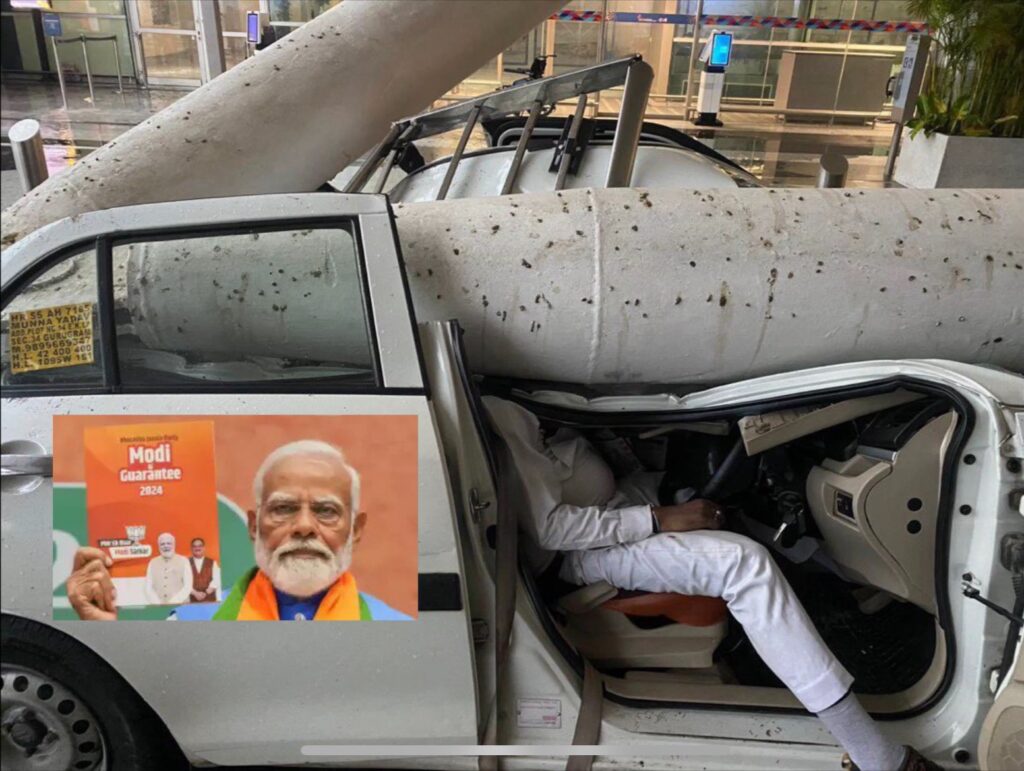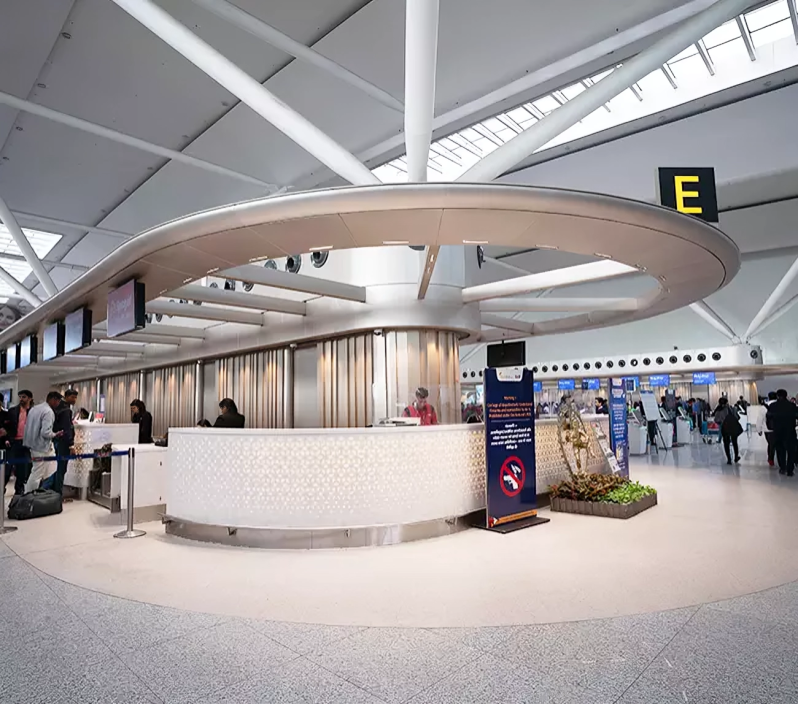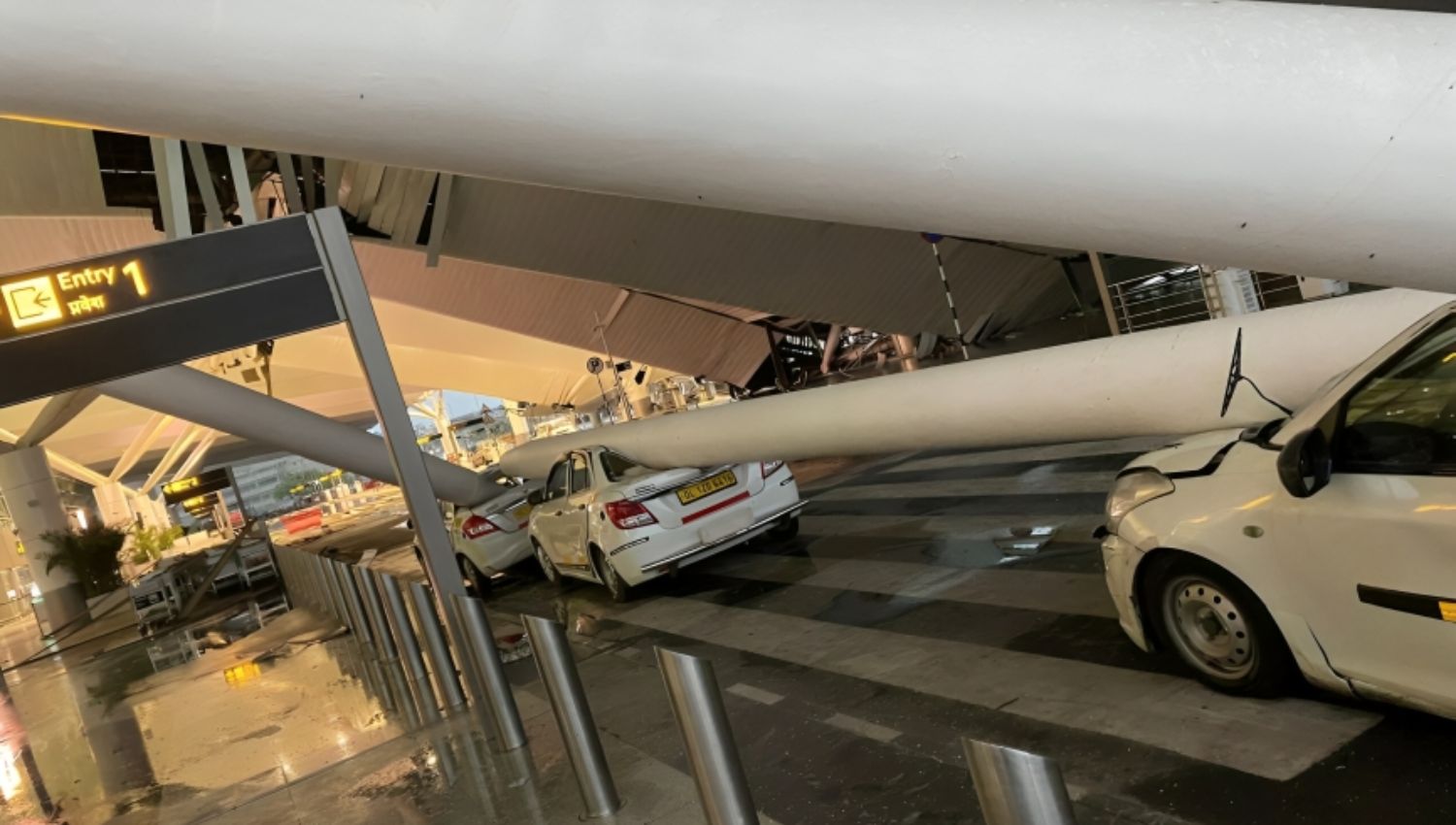Delhi News: Following heavy rainfall in Delhi-NCR on Friday, a section of the roof at IGI Airport Terminal 1 collapsed, resulting in three individuals sustaining injuries. The injured parties have been promptly admitted to the hospital for medical treatment. This incident has sparked discussions regarding the airport’s safety measures. It is worth mentioning that Prime Minister Narendra Modi inaugurated this terminal prior to the elections. On Sunday, 10 March 2024, PM Modi virtually inaugurated a total of 15 airports, including the expanded section of Terminal 1 at Indira Gandhi International Airport in Delhi. Previously, Terminal 1 facilitated the travel of 1.7 crore passengers. However, after its expansion, this number has significantly multiplied, allowing approximately 4 crore passengers to benefit from this terminal annually.

DIAL had expanded Terminal 1:
Terminal 1 underwent expansion under the supervision of GMR Airports Infrastructure, commissioned by DIAL. The construction of the terminal commenced in 2019 in response to a significant surge in air traffic and passenger volume at the airport. The inauguration of the expanded Terminal 1 was officiated by Prime Minister Narendra Modi on 10th March 2024.
On January 31, 2006, the Aviation Minister Praful Patel made an announcement regarding the ownership of Delhi Airport. He stated that the management rights of Delhi Airport would be sold to the DIAL consortium. In addition to Delhi, an agreement was also reached to sell Mumbai Airport to the GVK Group. Subsequently, on May 2, 2006, the management of both Delhi and Mumbai airports was transferred to a private consortium. The consortium responsible for the management of Delhi International Airport is known as Delhi International Airport Limited (DIAL) and is a part of the GMR Group. At present, the GMR Group holds a majority stake of 64% in Delhi Airport, while Fraport retains 10% and the Airports Authority of India retains a stake of 26%.
Malaysia Airports left in 2015:

Malaysia Airports no longer has any ownership stake in the airport, having previously held 10% of shares. In May 2015, Malaysia Airports made the decision to divest from the DIAL venture by selling its entire 10% stake to majority shareholder GMR Infra for $79 million. As a result, GMR Group’s ownership in DIAL rose to 64%.
Specialty of the expanded Terminal 1:
Delhi airport encompasses three terminals, each serving different capacities. Terminal 2 accommodates up to 15 million passengers on an annual basis, while Terminal 3 has a significantly larger capacity of 45 million passengers per year. Terminal 1 underwent expansion to accommodate the growing number of travelers at the other terminals. The expanded Terminal 1 now features eight entry gates equipped with DigiYatra’s facial recognition system. Additionally, it offers a range of facilities including 100 check-in counters, out of which 20 are automated trays, 36 self-baggage drops, and 10 baggage reclaim carousels capable of efficiently handling 6,000 units of luggage per hour. Previously, the airport’s capacity was limited to just 2,340 units.
Features:
The terminal, as per DIAL, is equipped with 24 entry points that have physical pick-up and drop-off lanes to facilitate the movement of vehicles. Upon entering the terminal, passengers can enjoy various amenities such as shopping and dining facilities, a prayer room, a yoga area, a quiet zone, lounges, charging stations, a self-medication room, a baby care room, smart washrooms, and more. Additionally, the terminal is linked to the Delhi Metro.

